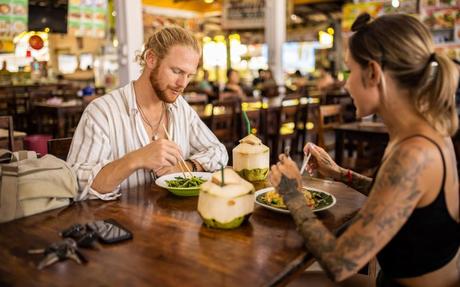
It is said that tourism standardizes the world. Millennials, let alone the rest of us, travel the planet, leveling the playing field, or expecting others to do so for us. Different cultures are being crushed.
This is not entirely wrong. Let's take a look around us. We see - on every high street and shopping centre, and on every salty seafront - identical coffee shops dividing coffee into multiple categories that few would have heard of 25 years ago, and then selling it in cups the size of oil barrels. You can experience this from Lisbon, via Morecambe, to Vancouver.
The global hamburger pandemic is also now likely unstoppable, as they have escaped from fast food restaurants and infected almost every other restaurant in the world. Just because "gourmet burgers" have a refined accent and come with fries in a cone or, God help us, a mini fry basket, doesn't make them less of a burger, unavoidable in any time zone. Ditto pizzas, more or less.
Wherever I go now, I'm finding it increasingly difficult to avoid vegan restaurants, cloudy craft beers, sushi, or places with QR codes instead of actual menus. ("Does sir need help scanning the code?" "Not sir. Sir can scan codes from 300 meters. He simply chooses not to do that.")
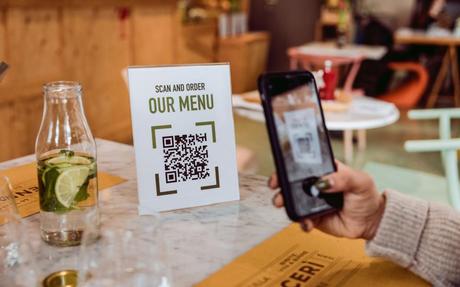
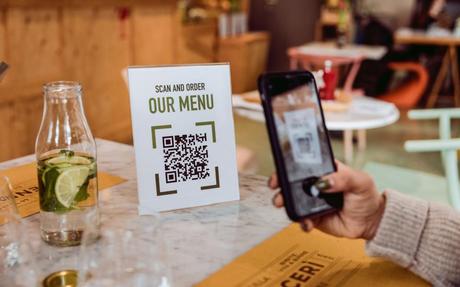
As far as hotels go, the widespread taste for plunging baths in the middle of the bedrooms is waning, and about time. While women are generally happy that their man is washing, no one wants to watch. That said, the universal oversupply of pillows remains. When you have an abundance of pillows on your bed, you know you're somewhere in the 21st century.
I came across about six of them on a hotel bed this weekend. As promised in previous notes, I went to throw them out the window, only to find that the window was boarded up - presumably for fear that normal people, driven mad by pillows, would be tempted to throw themselves out.
Nor does neutral hotel decor - gray, light green, beige, bare cement - do much to distinguish one place from another. Hoteliers are also now uniformly lecturing us about the precise placement of towels (in the shower, on the floor, on the rail) so that we can save the planet, while far too many of them believe that their distinctive character lies in putting up contemporary art all over the damn world. place: bedrooms, lobbies, lounges, the plot.
The story continues
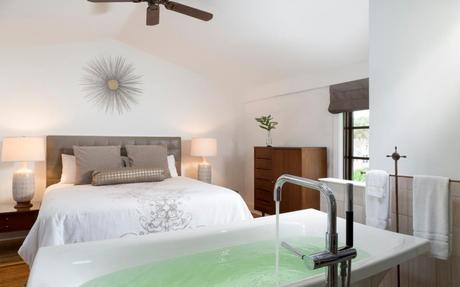
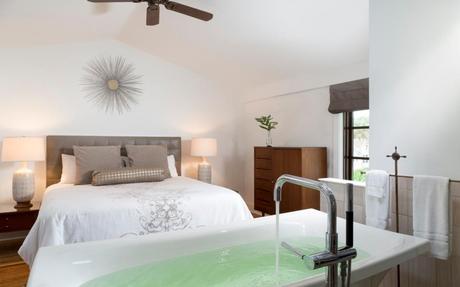
Ah, contemporary art. You'll have noticed it's broken out all over the world, from hotels and restaurants to cafes, bars, festivals, pop-up galleries and, most invasively, wineries. "We like to encourage local artists," a winemaker recently told me. Me too, I said. I would especially encourage them to take up plumbing, floristry or police work, rather than giving us their version of the origins of humanity - as they do, whether in Brighton or, I'm sure of, in Bolivia.
In addition to contemporary art, we find wellness, mindfulness and similar nonsense everywhere and always. Just like we do with Hermès scarves. Well, we do that when we're loaded. It is a constant source of wonder that the very rich know where they are, as when they leave the hotel past the guys in uniform, they encounter the very same shops - Cartier, YSL, Dior, Rolex, Swarovski - on the streets of Van Los Angeles to Monaco, from Rome to Shanghai.
Maybe her not know where they are. Perhaps they travel in little bubbles of self-interest, expecting the world to conform to their demands, with local culture emerging as maids, bartenders and the guys in uniform. And perhaps this attitude has also filtered down to influencers and others who think that the most interesting aspect of any place is their presence in it - and the selfies ('me and the Taj Mahal', 'me and a camel', 'me and a croissant'). ") They can post to Instagram, Tik-Tok and the rest. If we were to take cultural sensitivities seriously, we would surely burn all social networks in a bonfire of vanities.
That being said, we also need to be careful about being overly critical, especially if we are English speakers. A key element in global standardization is the expectation that everyone involved in interacting with visitors - absolutely everyone, everywhere - must speak English. This may not be a bad thing. The planet probably needs a global language. It means that non-English speakers only need to learn one language and there is no need to master Bulgarian, Filipino or Javanese while we travel.
But it should also give us pause when we start talking about standardizing our experience of the world. If we don't speak Bulgarian, we may be part of the problem.
Of course we are. But - and this is the point - there is no point in exaggerating the scale of that problem. Some people do. The American sociologist George Ritzer talks about the 'McDonaldization' of travel. "For me," he writes, "it is increasingly difficult to find in Europe something that is unknown and non-rationalized."
Maybe he should leave the airport more often. Perhaps he should make a return trip from, say, Bournemouth to Bratislava, via Bordeaux. Okay, he'll probably find Starbucks, KFC and Burger King everywhere, but those hardly define the places. They are minor additions at best.
No one in their right mind would mistake Bordeaux for Bournemouth just because you can buy a finger-licking good bucket of chicken in both.
The underlying accusation is that the arrival of tourists compromises the 'authenticity' of wherever they arrive. But authenticity isn't necessarily all it's cracked up to be. Poverty and sweatshops are authentic enough in parts of the world, as are honor killings, slavery and street crime. Believe me, there is nothing inauthentic about a robbery in Naples.
At least part of tourism's job is to pump money into local economies so that the conditions for such "authenticity" are alleviated, or at least tempered. I've mentioned before about Norman Lewis' Voices of the ancient sea. In this travel classic, Lewis tells about a remote village on the Costa Brava in the post-war years. It is located on the border between a fishing past and a tourist future.
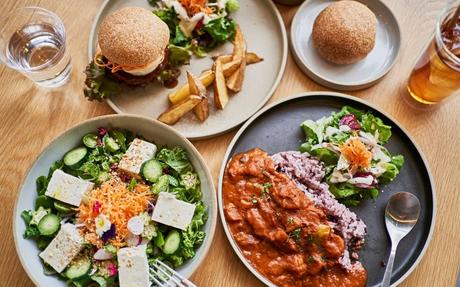
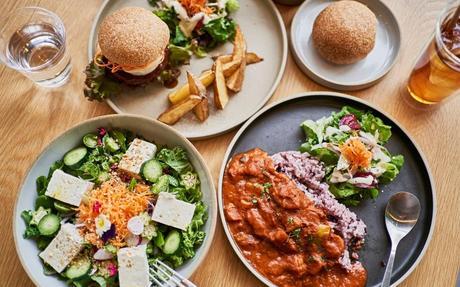
However extraordinarily non-didactic he is, Lewis cannot conceal his regret about this turn of events, about the loss of isolation, of old customs and village values. So of 'authenticity'. However, it must be said that isolation, old customs and values had given the villagers quite bloody, miserable lives - overwhelmed by superstition, insecurity, poverty and mischief.
It is no surprise that villagers, with some residual reluctance, embraced the development of tourism: they started working in the new hotel, opened their own guest rooms and organized pleasure trips in their fishing boats. Obviously they lost something along the way, but they were going to lose it anyway. They gained financial security and a foot in the world. Their descendants will undoubtedly have additional health insurance and smartphones, just like you and me.
It's easy to romanticize shepherds and net carriers when you're just passing through - even if, like Lewis, for quite long periods. Then you go home, and they're still trading individual goats, looking for sardines and lugging fresh water from five miles away. By wanting to leave the world so untouched, critics are making a great contribution to economic development.
In contrast, tourists - with all their varying needs - bring in cash. Some estimates suggest that travel and tourism generated 7.6 percent of global GDP last year, 2022 - before the effects of Covid had fully worn off. Or $7.7 trillion (£6.3 trillion). This year they are among the top 10 percent.
So it's a matter of balance. If we want to have tourists at all, we need people to take care of things for them. It's just a matter of not letting the indulgence get out of hand. Generally not. I live near the mass tourist resorts on the French Mediterranean coast. I have seen American and British visitors order the always available, "authentic" pieds et paquets or bouillabaisse at seaside restaurants - and clearly wish they had gone for the burgers.
